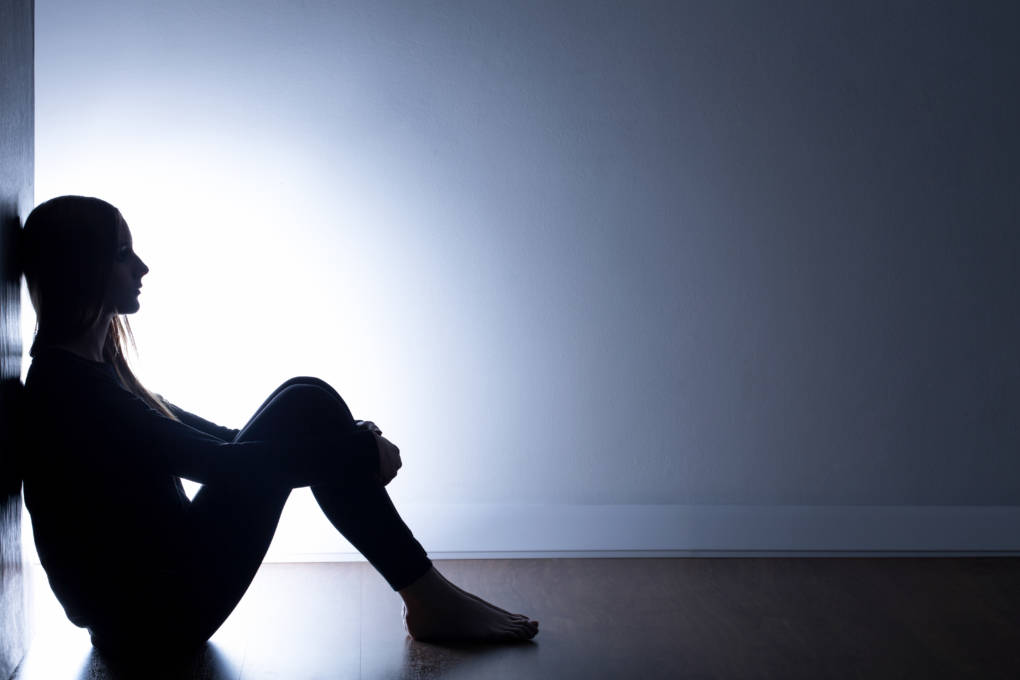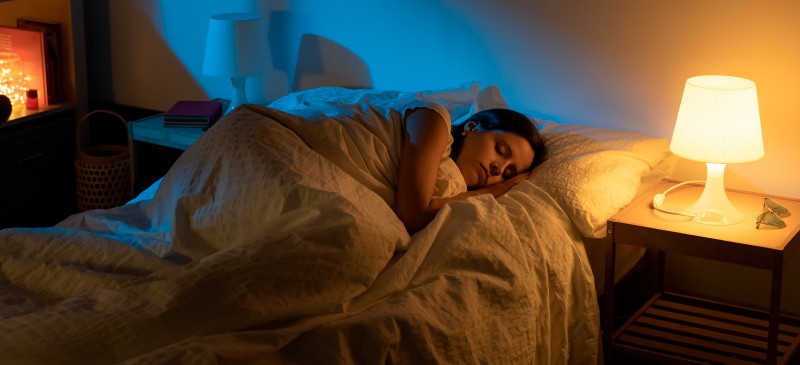In a new PNAS study, researchers found that even one day of acute exposure to artificial light during the night can boost insulin resistance and heart rate via engaging the sympathetic nervous system.
In industrial locations, acute exposure to artificial light while sleeping at night is typical. Acute light exposure during sleep is thought to be detrimental to human health and wellbeing because of the importance of the light-dark cycle in a number of physiological processes.
In light of this, your health may be impacted by your decision to switch off the lights or leave them on. The issue, though, goes beyond lighting and ceiling fixtures. We are surrounded by light from a variety of sources, such as streetlights, televisions, and the blue light produced by our electronic devices, such as cellphones, computers, and tablets.
A good night’s sleep is thought to be hampered by sleeping with any lights on. Depriving yourself of restful sleep can consequently have a variety of negative effects on your health. Studies have indicated that exposure to light and irregularities in metabolism are related in this situation. It has been proposed that modifications in regular sleep patterns could be connected to light-mediated metabolic changes. Another possibility is that variations in the endogenous circadian rhythm brought on by light could have an impact on metabolic processes.
Risks of Sleeping with the Lights On
Your brain finds it challenging to fall asleep more deeply when exposed to light when you’re sleeping. Your brain oscillations (activity) that allow you to enter deeper stages of sleep are significantly impacted by how little or no sleep you get at night.
The following adverse effects of light exposure and lack of deep sleep have also been related, in addition to disorders that directly impact your brain.
Chronic Disease Risk is Higher
Whether you are obese or not, your chance of developing certain chronic conditions may increase if light continues to disrupt your sleep over a lengthy period of time. They include type 2 diabetes, heart disease, and high blood pressure (hypertension).
Obesity
According to one study on women, those who slept with a television or light on had a higher prevalence of obesity. Participants in the study also had a 17 percent higher likelihood of gaining 11 pounds in a year. (Click here to find out how to safely cut down calorie) Light sources inside the bedroom were determined to be more important than lights outside the room.
Food consumption may play a role in obesity caused by sleep deprivation. According to studies, the more food you’ll probably eat the next day, the less sleep you get. This may have an impact on when you eat, as eating late at night may result in weight gain.
Depression
Depression has been associated with sleeping with the lights on. Your mood may be negatively impacted by blue light from technological devices. Moodiness and irritability can also result from sleep deprivation. Lack of sleep may cause children to become more hyperactive.

Accidents
You are less alert the next day if you don’t get adequate rest. Driving a car or using other types of machinery while doing this might be particularly risky. Moreover, Older adults may also be more prone to falls.
How Various Sleep Stages Impact the Improvement or Deterioration of Emotional Memories
According to the PNAS study, using high dosages of oral CBD can make THC’s effects worse by preventing THC metabolism.
Inadequate sleep is linked to various lengths of cardiovascular health deterioration. Those exposed to room light settings showed a 15% induction of insulin resistance, whereas participants subjected to dim light conditions showed a 4% reduction in insulin resistance. In terms of insulin sensitivity, room light and dim light settings, respectively, showed a 16% reduction and a 3% induction.
There was no discernible variation in blood glucose levels between dim and room light. Yet, individuals who were exposed to room light circumstances saw their insulin levels rise noticeably.
What if I need the Light on in order to fall Asleep?
Many adults are equally as guilty of leaving lights on, even if some youngsters find it more comforting to do so. Perhaps you’re accustomed to leaving a television or bedside lamp on at night. You might also check your phone or tablet.
When you’re used to having lights on in your bedroom, it can be challenging to go without them. Use a modest red-emitting nightlight at first, then stop using it once you’re accustomed to the darkness. Red nightlight bulbs have not been proven to have the same negative impact on melatonin generation as other colored bulbs.
To ensure that you won’t notice the absence of lights, it’s also crucial to add some other sound sleeping practices into your routine:
- Employ shades that darken rooms.
- Before going to bed, start turning down the lights in your house.
- Every night, go to bed at the same time, and wake up at the same time.
- Do not use electronics in your bedroom.
- Use blue light-blocking eyewear if you must check an electronic device to save melatonin.
- If possible, avoid taking naps during the day.
- Work out early in the day, preferably in the morning or late in the afternoon.
- Avoid consuming caffeine, alcohol, and heavy meals at night.
- Have a calming bedtime routine, such as reading, taking a bath, or practicing meditation.
- Your thermostat should be set to a chilly setting.
- Be relaxed. Make sure your pillows and mattress are cozy and in good condition.
- Make sure to seek light as soon as you awaken in the morning, whether it be artificial or natural. Your body will gradually learn that light indicates wakefulness and darkness indicates it’s time to sleep.
Takeaway
The results of the PNAS study shows that exposure to light when sleeping at night can drastically change cardiometabolic functions, particularly by increasing sympathetic nervous system activity. However, there was no effect of evening light exposure on melatonin levels, showing that circadian rhythms were not significantly involved in light-induced cardiometabolic changes.
For good sleep, an isolated, calm environment is necessary. Lack of sleep can quickly escalate into hazardous health problems that go beyond the next morning’s grouchiness. So it’s time to start going to bed without the lights on. If you or your bed partner have trouble falling asleep in the dark, use the tips above to ease into it.
To rule out other conditions like sleep apnea or insomnia, consult a doctor if you still don’t feel like you’re getting enough sleep.
Journal reference:
Mason, I. C., Grimaldi, D., Reid, K. J., et al. (2022). Light exposure during sleep impairs cardiometabolic function. PNAS. doi:10.1073/pnas.2113290119.
